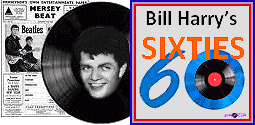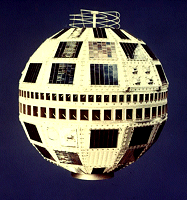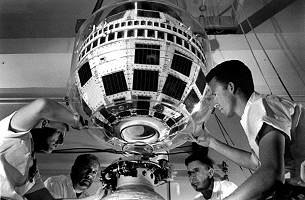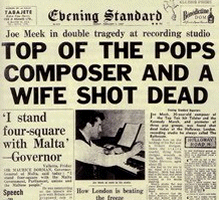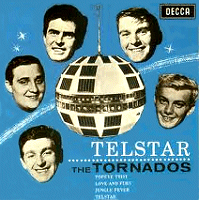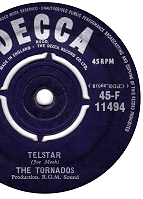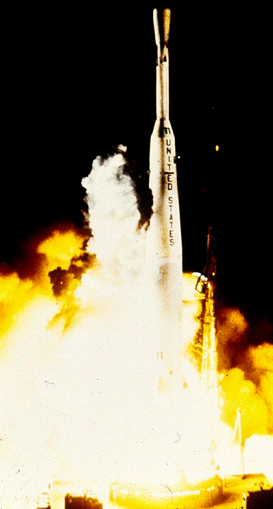They also sent back live pictures of Yves Montand singing. Goonhilly
Down only managed to capture the final minute of the American broadcast
and the first face which British viewers saw on the transatlantic broadcast
was that of Frederick Kappel, chairman of AT&T; (American Telephone and
Telegraph co), who built the satellite. Britain then beamed back a test
card picture and an official greeting. The satellite was also capable
of beaming a number of other transmissions across the Atlantic, including
telephone and telegraph messages. After four months Telstar’s decoders
failed, although it managed to continue broadcasting until February
1963 when radiation from the Van Allen belt ended its communications.
A Telstar 2 was launched on 7th May 1963.
The idea of transatlantic television was greeted with particular excitement
in Europe and the satellite inspired British record producer Joe
Meek to write an instrumental number ‘Telstar’, which was recorded
by The Tornados and reached No. 1 in the charts, appropriately on both
sides of the Atlantic, in October 1962, selling five million copies
worldwide. The 29-year-old Meek took one hour to arrange the number
with The Tornados
and half an hour to record it. It was the group’s biggest hit, although
they were to have further chart success in Britain with ‘Globe Trotter’,
‘Robot’, ‘The Ice Cream Man’ and ‘Dragonfly.’ The group comprised Heinz
Burt (bass guitar), Clem Cattini (drums), Alan Daddy (guitar/violin),
George Bellamy (guitar) and Roger Jackson (piano/organ). Joe Meek died
in a shooting on 3rd February 1967.

|
|
